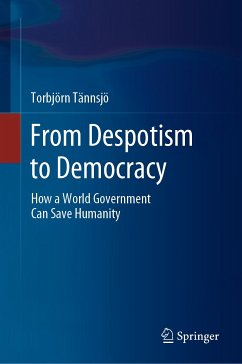This book is about how best to respond to existential global threats posed by war and global heating. The stakes have become existential. A strong claim in the book is that we need a world state to save humanity. The book sheds new light on why this is so. The present author has long advocated global democracy. A strong argument against global democracy has been, however, that no state has ever been established without the resort to violence. In this book, the author bites the bullet and advocates a route to global democracy that passes through a phase where a global state is established in the form of global despotism. First despotism, then democracy! But, as the author insists and the reader will find, this is at most something we can hope for. We may fail. The moral importance of failure is thoroughly discussed.
The book explored the following topics:
The book is written by a philosopher, but the intended audience is broad. It has a place in courses in political philosophy, but it is possible for anyone who wants to do so to dig deeper into the questions should be able to read it. And regardless of whether you who read the book are a scholar or a layperson, there is no way for you to avoid its topic. Global existential issues concern all of us, regardless of profession or nationality.
The book explored the following topics:
· The tragedy of the commons is presented as the best explanation of why we do so little to obviate the causes behind climate change.
· A world government presents a way out of the tragedy of the commons.
· Standard arguments against a world state are examined.
· The question of whether it matters if humanity goes extinct is taken seriously.
· What if the attempt to establish a world state fails.
The book is written by a philosopher, but the intended audience is broad. It has a place in courses in political philosophy, but it is possible for anyone who wants to do so to dig deeper into the questions should be able to read it. And regardless of whether you who read the book are a scholar or a layperson, there is no way for you to avoid its topic. Global existential issues concern all of us, regardless of profession or nationality.









